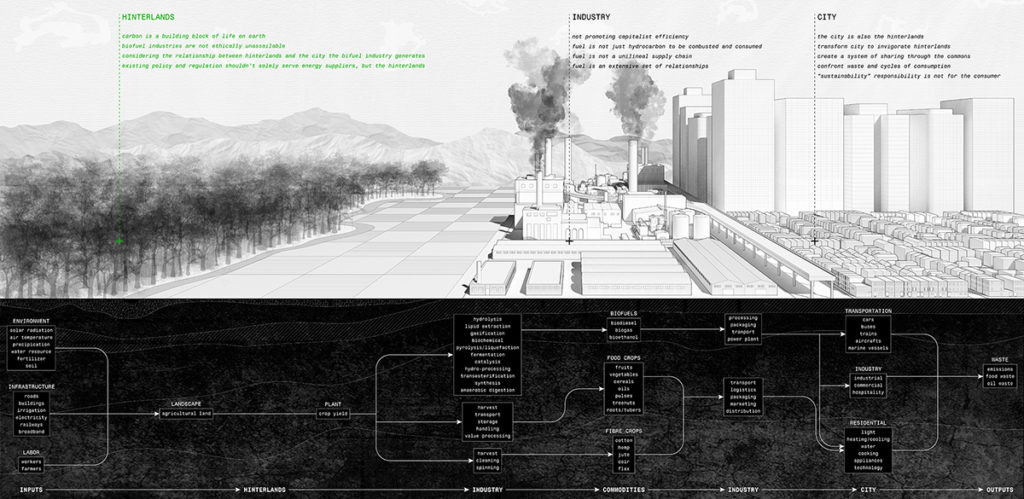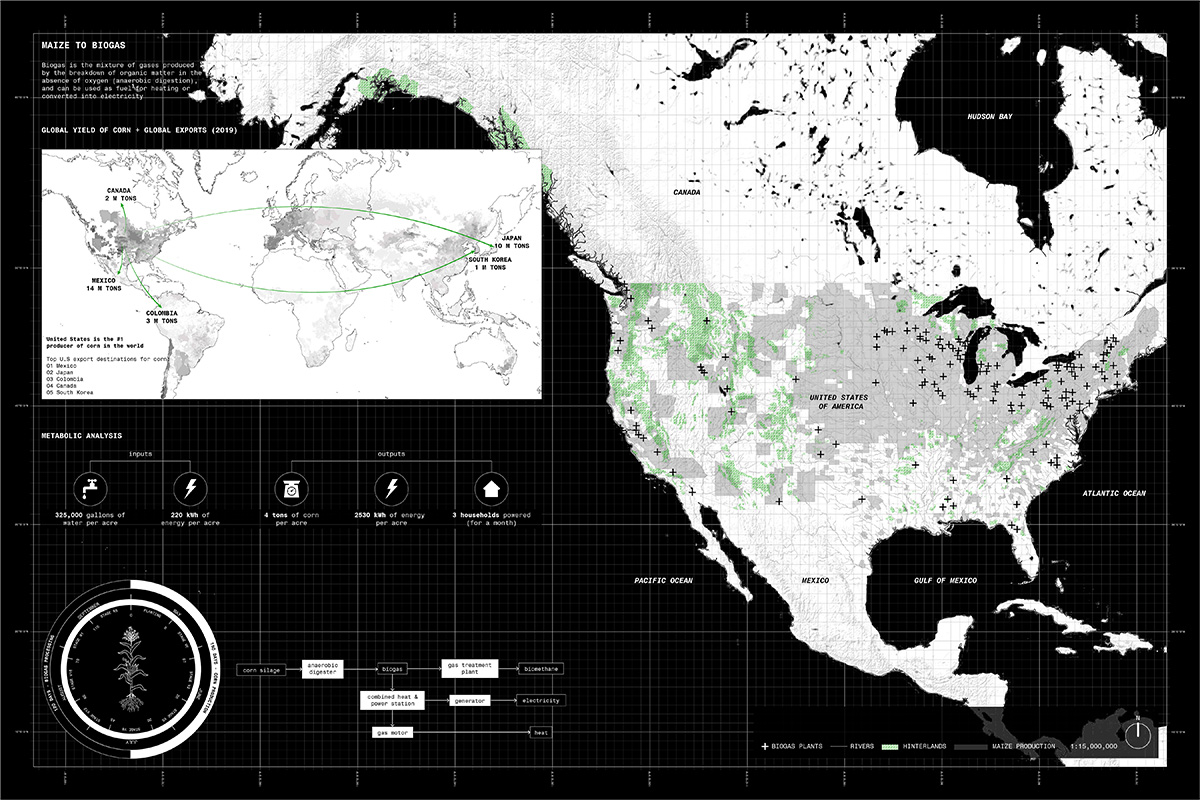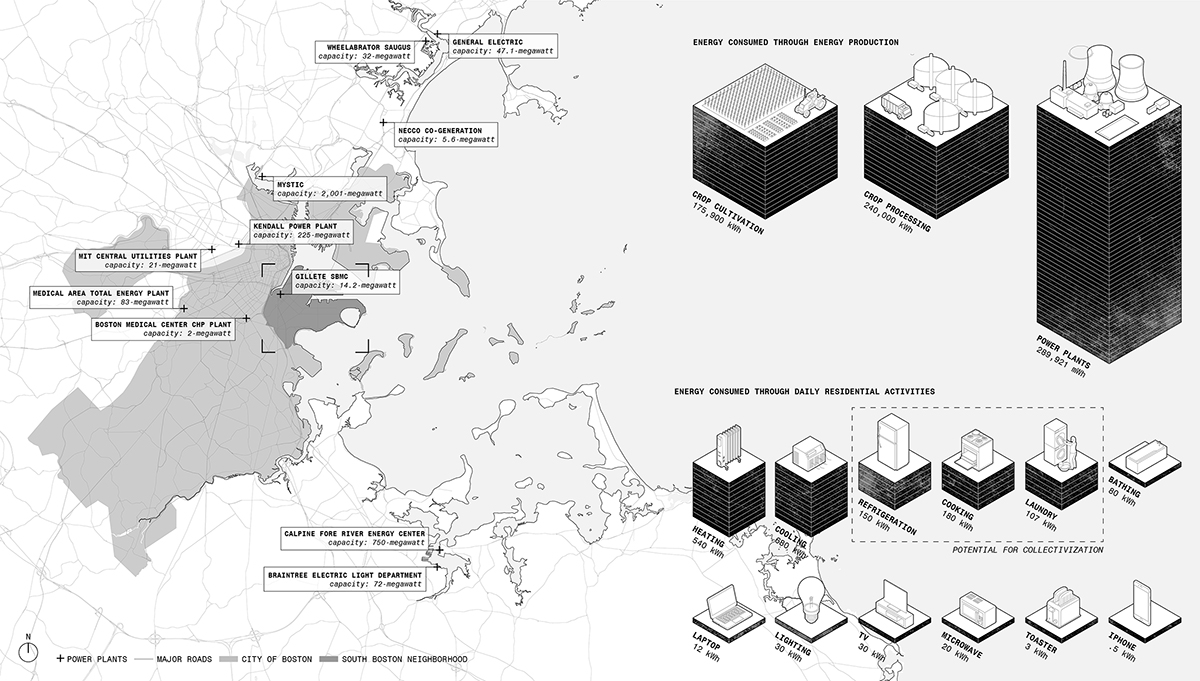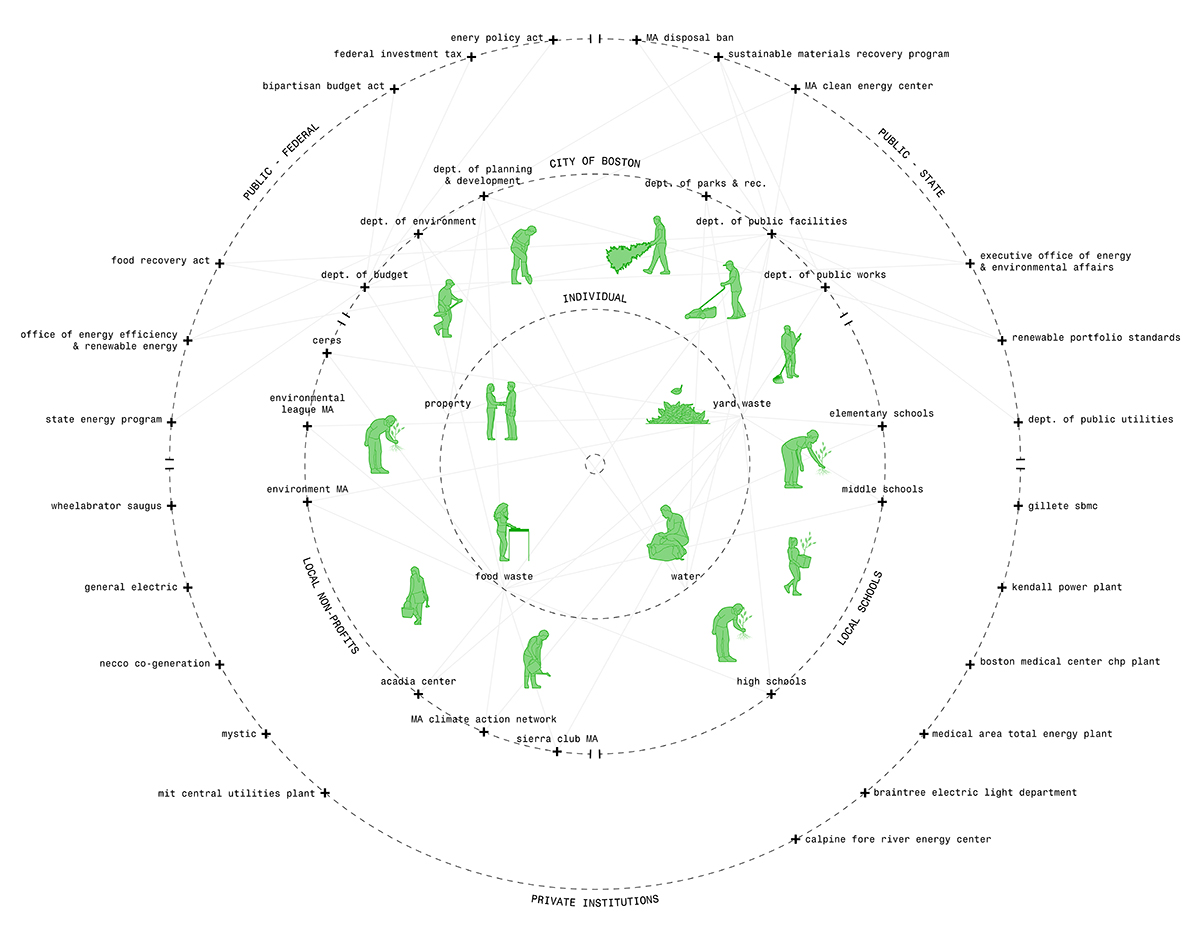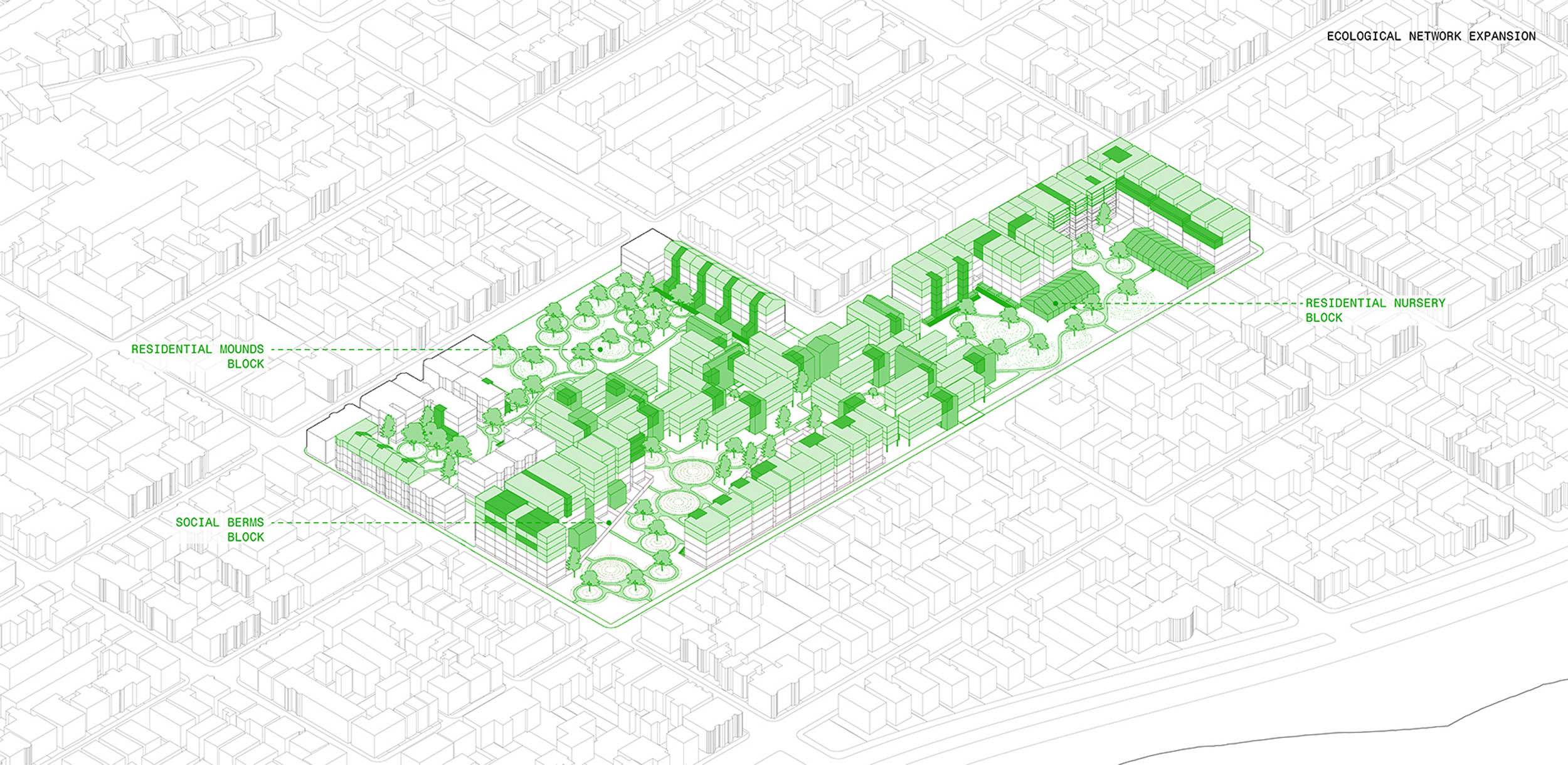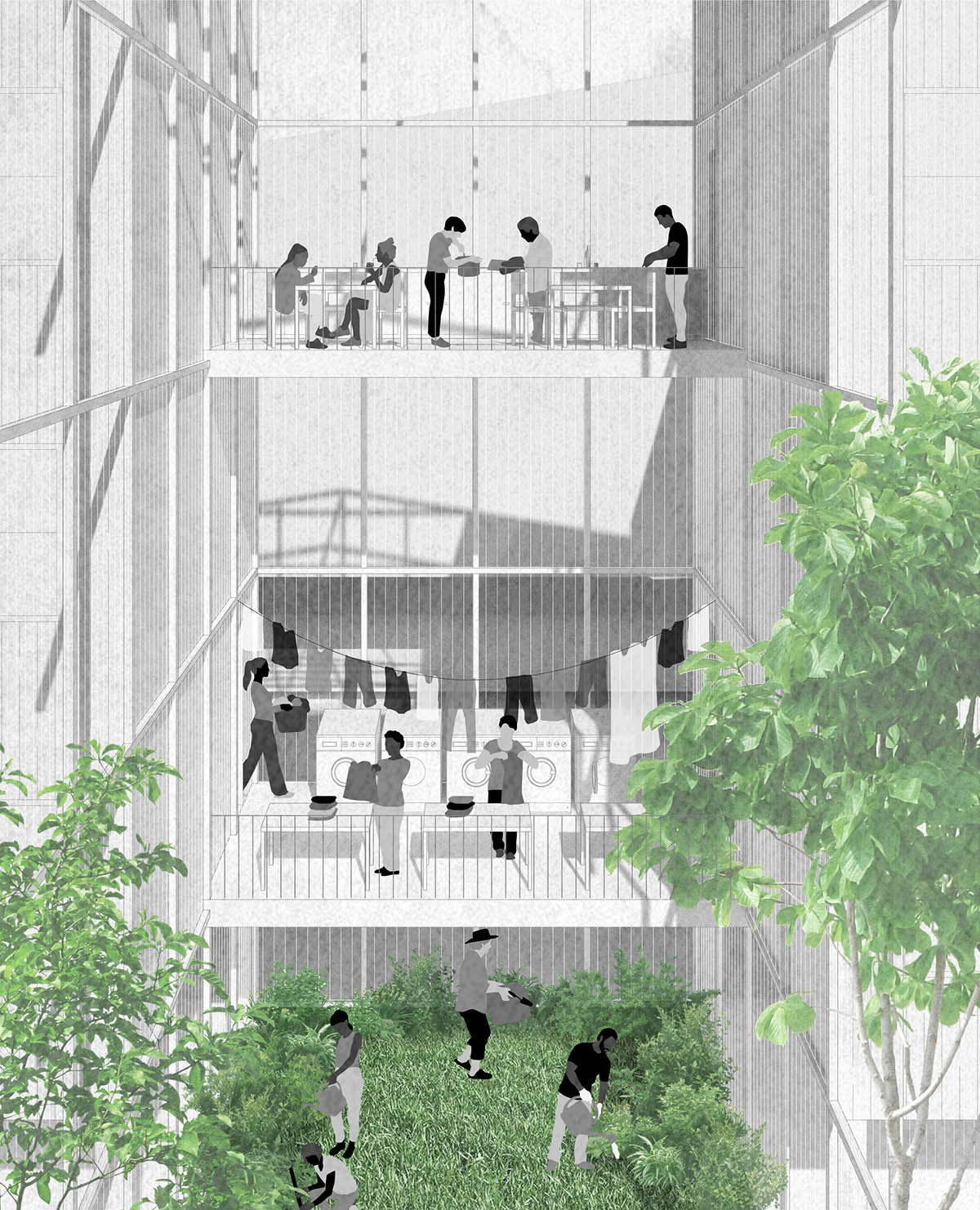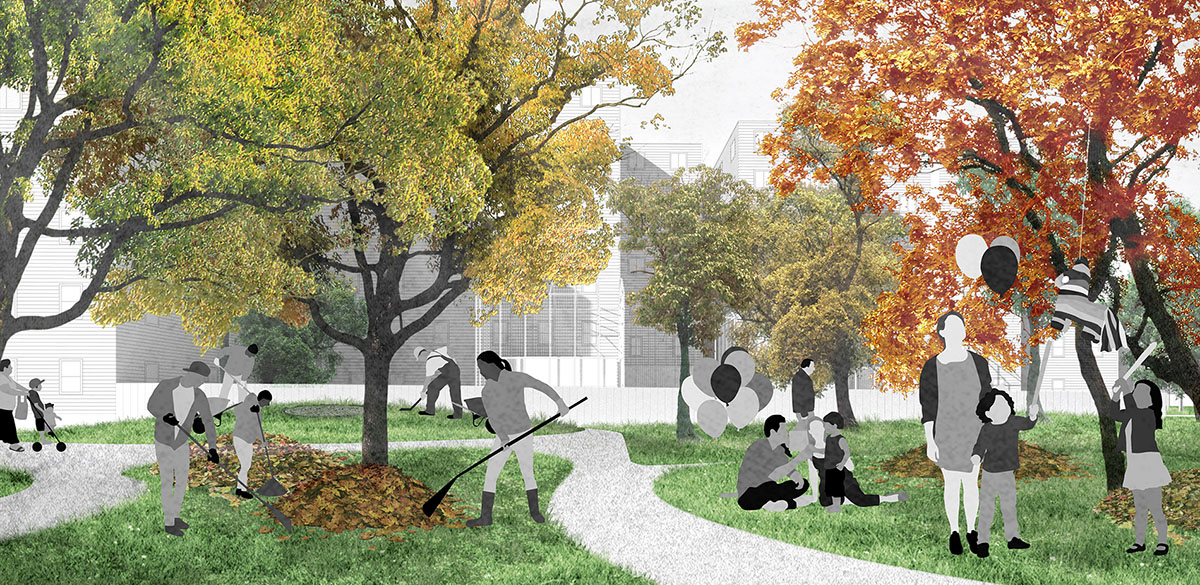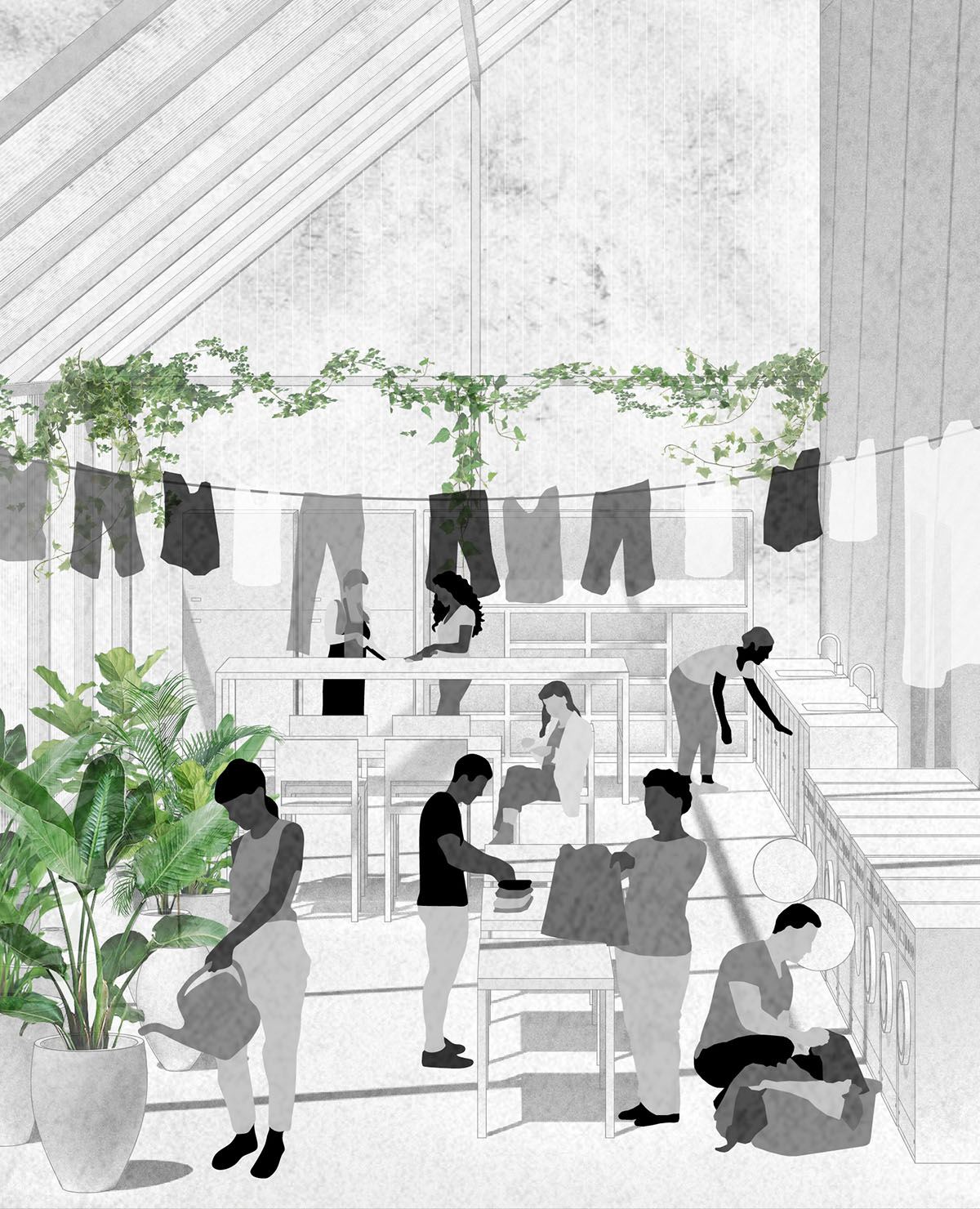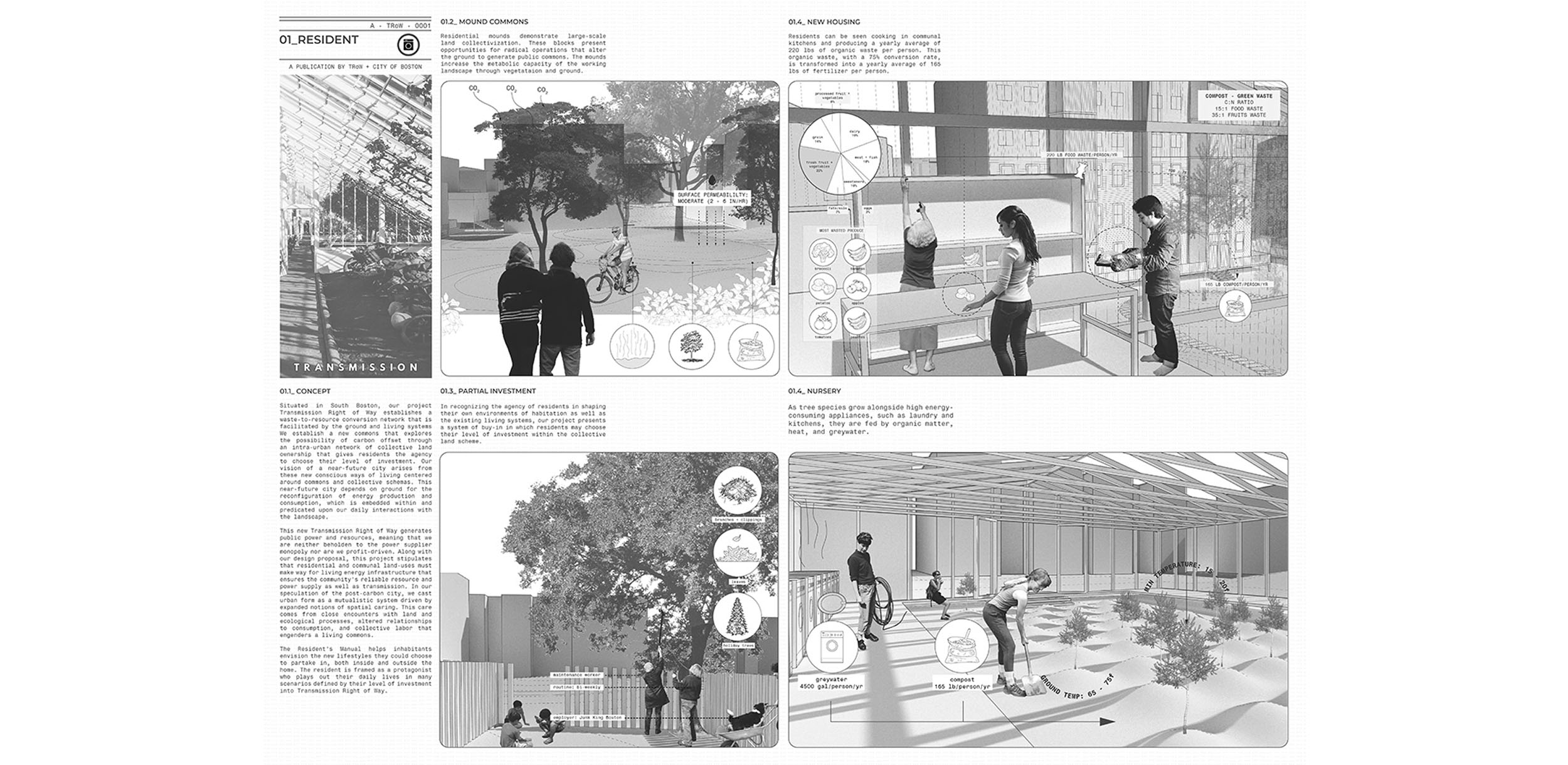Transmission Right of Way
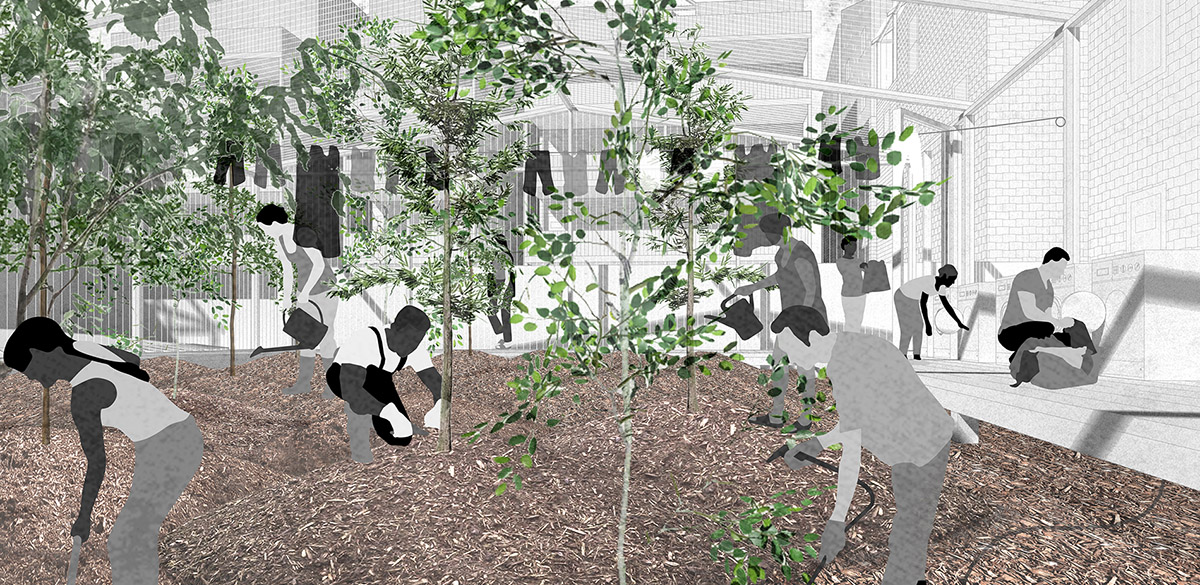
by Fabiana Casale (MLA I AP ’22), Yvonne Fang (MLA I ’21), and Maria Ulloa (MLA I AP ’21)
Currently, energy production and consumption within the city is depleting the hinterlands. Despite attempts to adapt “sustainable” modes of energy, existing urban lifestyles continue to accelerate land degradation through resource extraction in the hinterlands. We acknowledge that our consumptive habits are shaped and exacerbated by forms of living in the city. As such, innovative urban spatial solutions are necessary for changing the way we dwell.
Situated in South Boston, “Transmission Right of Way” establishes a waste-to-resource conversion network that is facilitated by the ground and living systems. Our redefinition of transmission right of way as an ecological easement network first emerged through synthesizing hinterland reform policy and electric grid guidelines. This project establishes a new commons through an intra-urban network of collective land ownership that gives residents the agency to choose their level of investment.
This new transmission right of way generates public power and resources, meaning that we are neither beholden to the power supplier monopoly nor are we profit-driven. Along with our design proposal, the project stipulates that residential and communal land-uses must make way for living energy infrastructure that ensures the community’s reliable resource and power supply as well as transmission.
In our speculation of the post-carbon city, we cast urban form as a mutualistic system driven by expanded notions of spatial caring. This care comes from close encounters with land and ecological processes, altered relationships to consumption, and collective labor that engenders a living commons. This expanded care enables a new way of living that renounces energy as unilineal consumption and instead embraces the notion of energy in which we become accountable for all direct and indirect labor, costs, and sacrifices that support our existence. All in all, “Transmission Right of Way” is founded upon frank accountability, tenacious democracy, sincere institutional support, and above all, conscious love and care for absolutely everything that enables us to live aspirationally.
